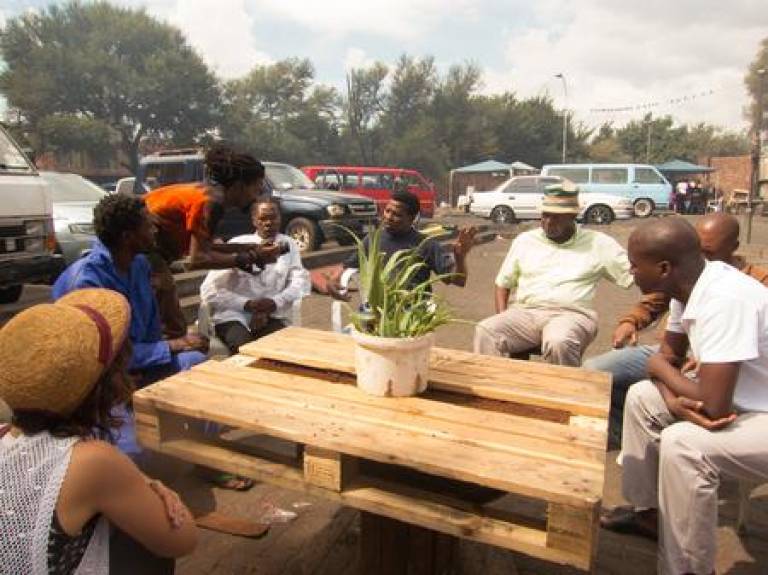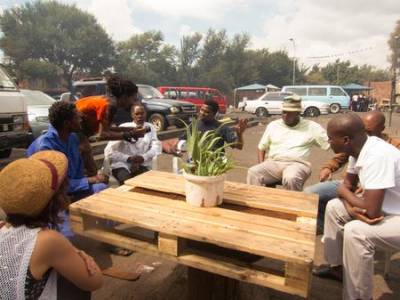Socio-Technical Design in post-apartheid South Africa
09 December 2015, 1:00 pm–2:00 pm

Event Information
Open to
- All
Location
-
Room 133, Bartlett School of Architecture, 140 Hampstead Road, London NW1 2BX
Recently awarded a Ashoka Fellowship to develop what his
co-founded organisation has come to term Socio-Technical Design, Jhono Bennett (1to1) will be speaking at this special seminar hosted by UCL Urban Laboratory.
The Socio-Technical Design approach has been defined in response to the lack of effective spatial
design practitioners engaging with the legacy of socio-spatial
segregation that still plagues current day South Africa.
Jhono's work responds to the complex position that spatial design practitioners face working in the re-developing environment of post-apartheid South Africa and sits between academia, civic society and private practice to find a meaningful mode of engagement towards affecting social change in his home country.
The presentation will unpack the process of how this approach has been developed, what it aims to achieve in the context of Southern Africa and discuss some examples of successful and failed projects on this journey.
Jhono Bennett is an architectural urbanist based in Johannesburg, South Africa. He has worked with Architecture for Humanity on the Football for Hope Initiative, the South African Shack Dwellers International Alliance but developed a critical stance in regard to the role of design in the fluid and dynamic developing areas of South Africa during the Slovo Park Project; a student and community research, design initiative. Jhono is currently a collaborating leader of the postgraduate design research unit of Architecture & Agency at the University of Johannesburg's ground-breaking Graduate School of Architecture while managing the operations of 1to1 - Agency of Engagement; a non-profit entity that provides a design based collaborative service between grass roots organisations, professionals, academia and government.
This seminar is open to the public.
Further links
 Close
Close


